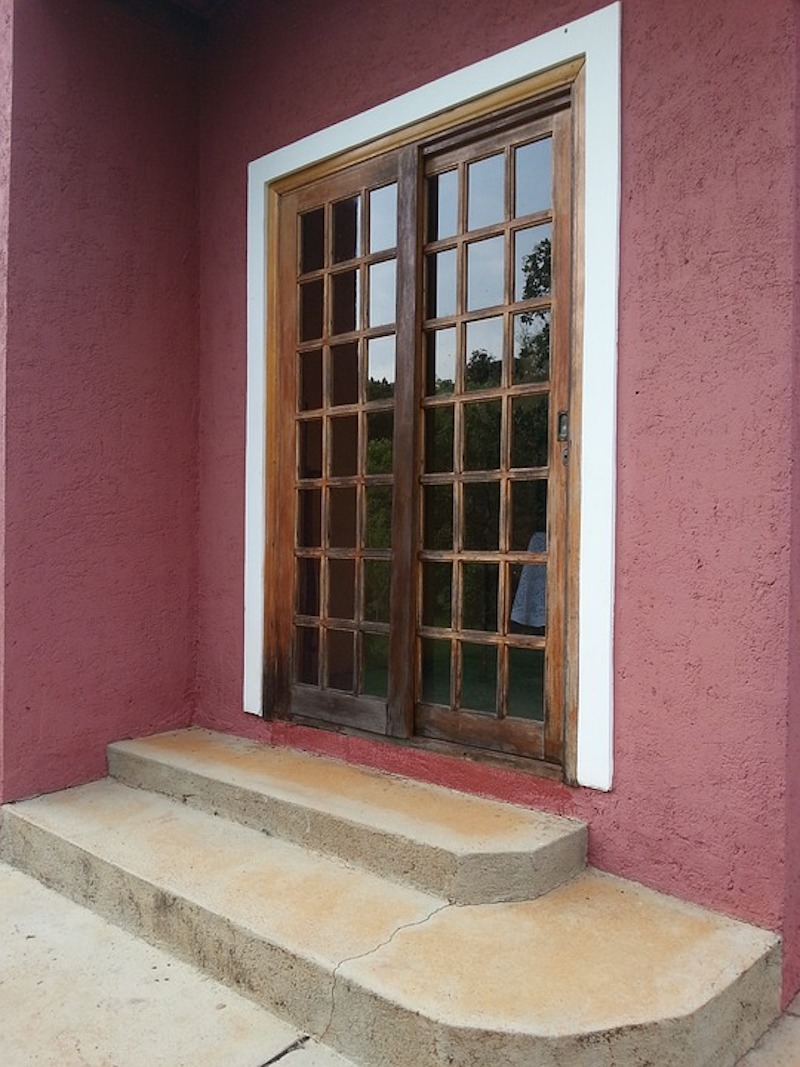The American Architectural Manufacturers Association (AAMA) updated a document for evaluating the performance and durability of rollers used in the operation of sliding doors and lift and slide doors.
AAMA 906-18, "Voluntary Specification for Sliding Door and Lift and Slide Roller Assemblies," was first released in 2005 and was last updated in 2015. "The 906 document was updated to reflect testing of large weight capacity rated sliding door rollers," said Jan Huml, chair of the AAMA 906 Lift and Slide Roller Assemblies Task Group.
“We changed the dwell cycle time because test labs were concerned about injuries during testing, with rollers being tested at weights up to 1,500 pounds per pair with fast dwell speeds,” Huml said. A panel weighing up to 1,500 pounds operates at slow operating speeds in the real world, which the new dwell time changes address, he added.
Representative samples of the door rollers are evaluated for performance at the weight rating specified by the roller manufacturer by cycling the rollers under load for 10,000 cycles. Clearance and operating force measurements are taken before and after the cycle test to ensure performance remains within specified tolerances.
Related Stories
| Apr 18, 2014
Massachusetts Supreme Court clarifies building code liability issue on mixed-use projects
The Massachusetts Supreme Judicial Court recently ruled that distinct portions of a mixed-used building may be treated as distinct and different structures under the state building code.
| Apr 18, 2014
First international buildings among 700-plus certified by BOMA 360 Performance Program
In the first quarter of 2014, the Building Owners and Managers Association (BOMA) International certified 66 properties in the BOMA 360 Performance Program for commercial real estate markets across the U.S and, for the first time, abroad.
| Apr 16, 2014
OSHA proposes $2.3 million in fines against Olivet Management for exposing workers to asbestos and lead
Olivet Management LLC, a real estate development and management company, faces $2.3 million in proposed fines from the Occupational Safety and Health Administration.
| Apr 10, 2014
Green Building Certification Institute partners with Well Building Institute on standard
The Green Building Certification Institute (GBCI), which administers third-party certification for the LEED standard, and the Well Building Institute will collaborate to promote the WELL Building Standard.
| Apr 10, 2014
OSHA’s construction safety advisory committee invites input on construction regulations
The Occupational Safety and Health Administration will hold a meeting of the Advisory Committee on Construction Safety and Health May 7-8, 2014, in Washington, D.C.
| Apr 10, 2014
ASTM’s International Standards in Building Codes now available in DVD and online
The compilation ASTM Standards in Building Codes contains more than 1,300 ASTM construction specifications, practices and test methods, and is now available in DVD and online.
| Apr 10, 2014
New California energy code requires building systems to be ready for demand response energy management
Starting in June, California’s latest version of its Title 24 building code kicks in, requiring several systems come with demand response capability.
| Apr 4, 2014
Green Building Initiative moves to include locally sourced materials in Green Globes
The Green Building Initiative group based in Portland, Ore., met with the Department of Agriculture on a plan to include locally sourced materials in its green building standards.
| Apr 4, 2014
White roofs outperform green roofs in reducing heat-island effect, says Lawrence Berkeley Lab
A new report from LBNL says that white roofs are three times more effective than green roofs at “cooling the globe.”
| Apr 4, 2014
ASHRAE standard aims for consistency in measuring building energy use
The standard answers such questions as: Should the measurements of a building’s area used in the equation to derive energy use per square foot be taken from the exterior dimensions or to the centerline of the wall? And, should storage spaces be included even though they are unoccupied?












